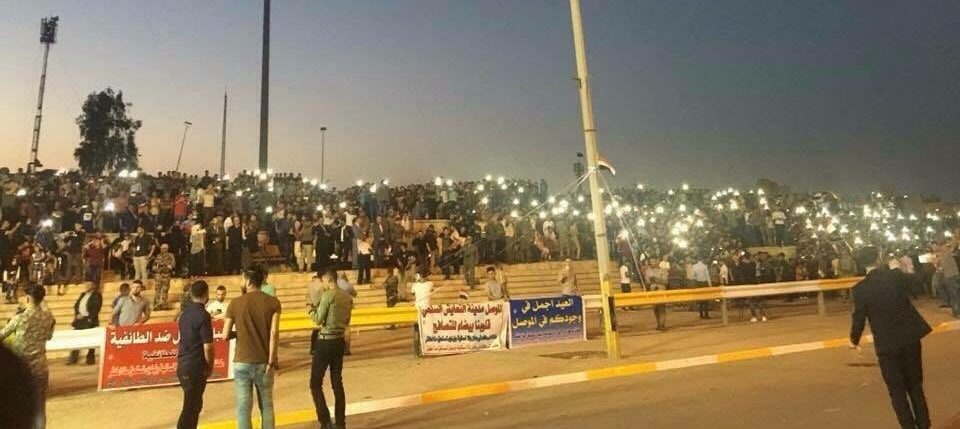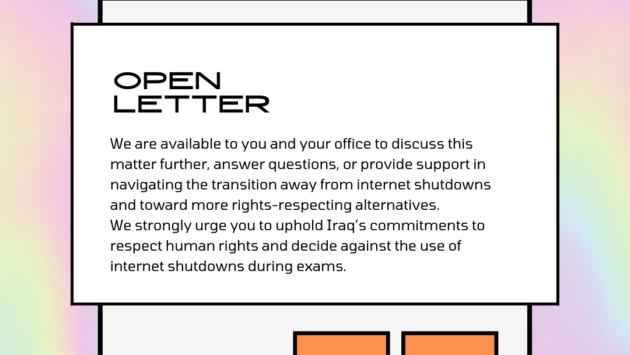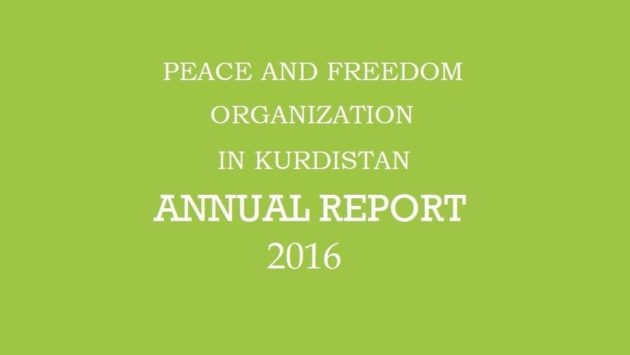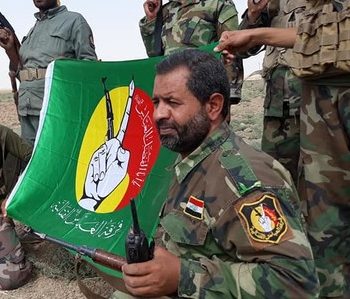Eid in Mosul: A Youth Initiative Brings Together People from all over Iraq to Visit Mosul during Eid
After three years of forced isolation from its motherland imposed by Daesh, Mosul re-emerged this June to celebrate its first Eid since liberation. Many citizens from all governorates of Iraq participated in the celebration which was part of a youth initiative called ‘Eid in Mosul’.
The ‘convoy of freedom’, as organizers called the event, was a show of solidarity with the people of Mosul. It started in Al-Tahrir Square on 27 June in Baghdad, where more than 350 people from all over Iraq gathered, including boys and girls, and traveled to Mosul to share in the celebrations of the liberation and to exchange Eid wishes on the third day of Eid, Al-Iftar.
‘The initiative aims to strengthen bonds with the people of Mosul, to carry messages of love to them, and to revive the spirit of coexistence and peace between the people of Mosul and the rest of the citizens of Iraq’, said the journalist, Hamid Al-Sayid, one of the organizers of the convoy.
Al-Sayid added, ‘After the end of the military operations and the liberation of Mosul from the control of Daesh, I started to think about the possibility of visiting the city, and my enthusiasm increased after seeing the positive reaction of my friends about the idea. We decided that this visit should be a public one, and that we should invite anyone interested in going to Mosul for Eid. The idea spread quickly, and our circle of friends expanded rapidly. The idea of visiting and celebrating together with the residents of Mosul resonated positively with many people’.
The organizers coordinated with the Iraqi security forces to ensure that the visit would be safe. They appeared to be fully willing to cooperate, and provided the required support for civilians traveling to Mosul. Once there, the ‘convoy of freedom’ held a large celebration which was attended by Mosul residents, the convoy from Baghdad, as well as others coming from the rest of the Iraqi provinces.
Yazan Adnan, a young Baghdadi participant in the initiative, describes his trip to Mosul by saying ‘This is my first visit to Mosul. When we entered the city, we could see the sense of freedom in the eyes of the people after their liberation from the control of Daesh. We felt joy, and we were welcomed by the people of Mosul who came out spontaneously to celebrate upon our arrival. This reflected their desire to build bonds of peaceful coexistence, and erase the memories of a bitter era suffered by them, and all Iraqis’.
‘On the way from Baghdad to Mosul, we passed through other cities that were controlled by Daesh. The scenes of destruction and devastation still present in these cities are tragic, and this led us to think about carrying out similar activities in other cities,’ Yazan said. He then added, ‘One of the most moving moments of our visit was the warm reception we had from the people of Mosul, some of whom greeted us with tears, and some with cheers and hugs. This outpouring of love and gratitude directly challenges the images Daesh worked so hard to promote through its media’.
A touching story told by Ahmed Al-Amri, a participant from the city of Najaf, recounts, ‘I have an old friend from Mosul called Amani. We have not seen each other since the occupation of the city three years ago, but we communicated continuously throughout the occupation. During that time, Amani always told me how she and the city were suffering because of Daesh, she was in despair, fearing that liberation would not come. But I constantly encouraged her. With the liberation of the city, I found the opportunity to see my friend Amani again, and celebrate together with her and others from Mosul on the liberation of their beloved city.’
Over 20.000 books were distributed during the convoy’s visit; most were given to the University of Mosul. Additional books were distributed to locals in an initiative to promote reading, and to support and reinvigorate the rich culture that characterized the city before Daesh sought a metamorphosis of its cultural identity.
The convoy was carried out by activists from civil society. The celebrations the initiated showed solidarity with the people of Mosul, especially important given their suffering during Daesh’s occupation. Activities like this will help to rebuild their city, — and they are not isolated incidents. Similar initiatives were held by the Iraqi Social Forum and the Sport Against Violence team (SAVI) who organized a visit to Mosul after the west side was liberated in February of this year. The SAVI team organized a sports events which carried messages of peace and solidarity with civilians, and attempted to mitigate the psychological effects of the war.






